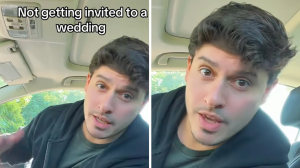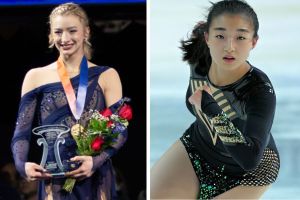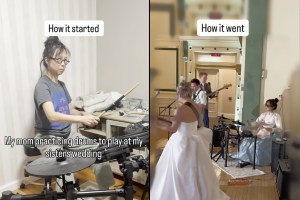A quick glance at the lineup for Variety’s annual “A Night in the Writers’ Room” event turned up something a little odd: It was almost entirely men.
The event, to be held in West Hollywood on June 14, features some really great, talented people working in TV right now. Writers from shows like “The Americans,” “Black Lightning,” “Atlanta,” and “The Good Place” are all slated to appear, a veritable who’s-who of TV talent. But of the 12 writers scheduled to appear, 11 of them are men.
Writer Wendy Molyneux (“Bob’s Burgers”) noticed this, tweeting, “I guess what you’ll find in the writers’ room is over 90% men!”
A number of the scheduled writers offered to give up their spots on the panel to make room for women, which really was a nice gesture.
“The Good Place” writer Michael Schur (who goes by “Ken Tremendous” on Twitter) tweeted that while he didn’t know who else was scheduled to appear at the event, he thought it’d be appropriate to replace him with “any one of the dozens of women who should be part of any event like this.” David Shore (“The Good Doctor”) concurred, saying that he notified organizers he was “happy to be replaced.”
Twitter user @WintryMixALot replied to Schur, writing, “Dude, I love you, but you seriously accept invites to be on panels without asking who else will be on them? If you care about representation please stop doing that.” In a follow-up tweet, Schur committed to doing that moving forward.
To its credit, Variety responded to its, er, lack of variety when it came to organizing this event.
“On behalf of Variety, we apologize for the egregious oversight regarding the lack of female writers participating in our upcoming A Night in the Writers’ Room event,” was posted on Twitter, adding Variety is “working on rectifying” the mistake.
In 2017, Variety’s “A Night in the Writers’ Room” event featured 10 men and two women. The 2016 event featured 10 men and three women. Now, yes, it is entirely possible that Variety had planned to make a more concerted effort to be more gender-proportionate in 2018, but based on past years, this seems to have been more business as usual as opposed to an “egregious oversight” on their part.
Lost in a lot of the social media discussion was the fact that in addition to being overwhelmingly male, the event has a tendency to be overwhelmingly white.
The 2018 event features zero women of color. There was just one (Ava DuVernay) in 2017 and one in 2016 (Misha Green). For all the outcry over the lack of gender diversity, however, not a lot was said about race.
Director Sade Sellers rightly pointed this out on Twitter, indicating she’d love to put together another panel filled with women — including women of color.
Hopefully Variety takes this criticism into consideration as it scrambles to fix this. After all, part of what makes panel discussions so interesting is hearing from people with wildly different backgrounds having a conversation about their different upbringings, perspectives, and how that fits into their work. That kind of conversation can only happen with a diverse panel.
Now, you may be asking yourself why stuff like this even matters. After all, it’s just a panel. There’s more to it than that.
“When they can’t even manage tokenism, then you know they really don’t care,” says Nell Scovell, a writer whose credits include “Late Night With David Letterman,” “The Simpsons,” and “Sabrina, the Teenage Witch.”
Scovell gets to the heart of the matter: These types of prestigious industry panels send a message to aspiring creatives and viewers about who their product is actually for. “These panels should reflect the audiences and women are just as interested in highly-paid, creative jobs as men. Maybe even more.”
Molyneux touches on what kind of impression it makes when there’s a lack of diversity in representation. If there’s hope of keeping fresh talent interested in pursuing a career in the entertainment industry, the industry needs to take a few small overtures in their direction. The problem has an easy solution: Don’t be a jerk.
“‘Don’t be a d-bag’ is the lesson of our time, right? Before you announce your panel, look at your roster and ask yourself: ‘Am I about to be a d-bag?’ says Molyneux. “I mean, if your panel is 91.67% male — and please have a man check my math — maybe get on the pink phone & ring up some girls. We all live in a big house together so we can sync our menses, so you’re bound to get SOMEONE. Under his eye,” she finishes, jokingly.


































